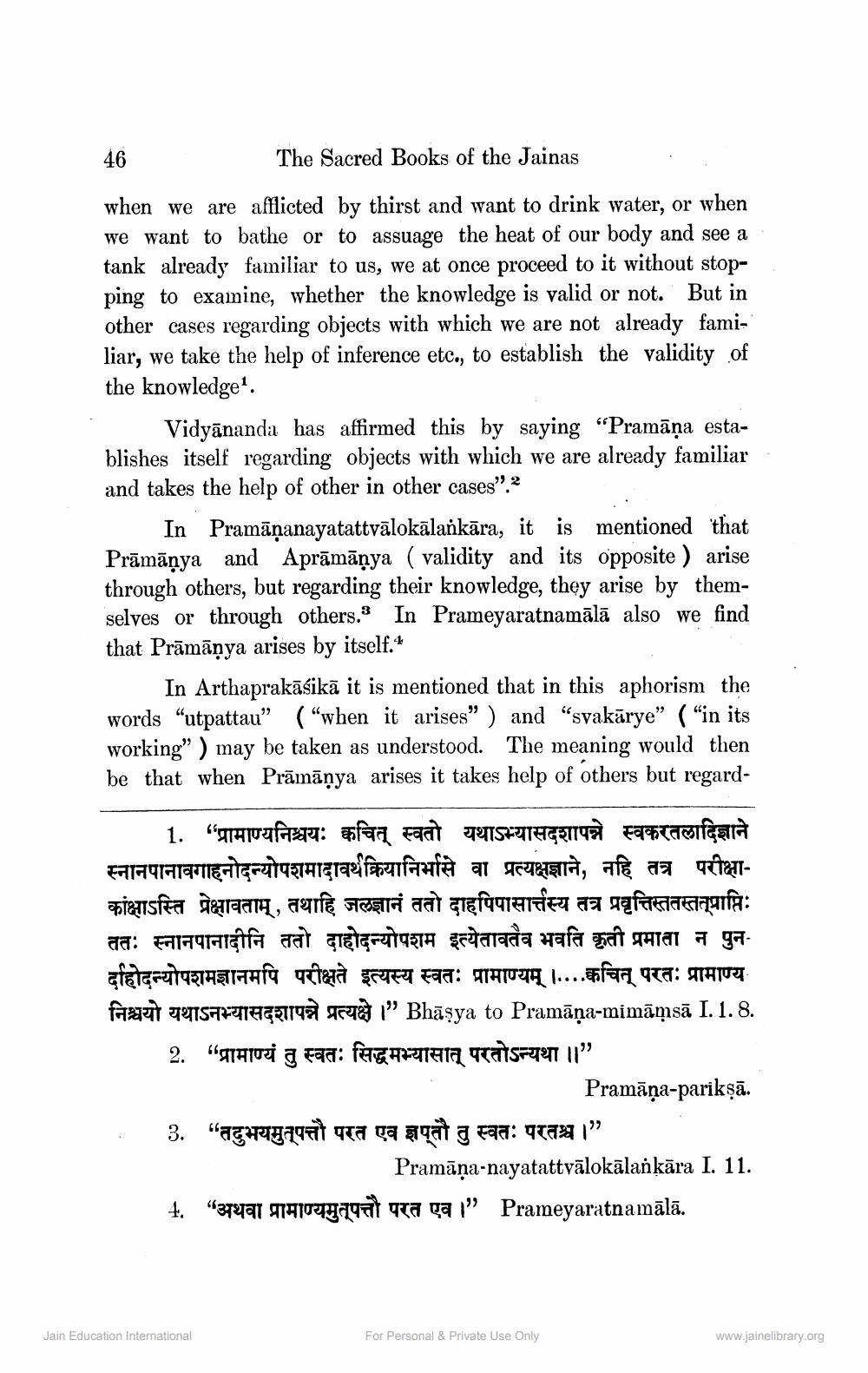________________
46
The Sacred Books of the Jainas
when we are afflicted by thirst and want to drink water, or when we want to bathe or to assuage the heat of our body and see a tank already familiar to us, we at once proceed to it without stopping to examine, whether the knowledge is valid or not. But in other cases regarding objects with which we are not already familiar, we take the help of inference etc., to establish the validity of the knowledge'.
Vidyānanda has affirmed this by saying "Pramāņa establishes itself regarding objects with which we are already familiar and takes the help of other in other cases”. 2
In Pramāṇanayatattvālokālankāra, it is mentioned that Prāmāṇya and Aprāmāṇya ( validity and its opposite ) arise through others, but regarding their knowledge, they arise by themselves or through others. In Prameyaratnamālā also we find that Prāmāṇya arises by itself.*
In Arthaprakāśikā it is mentioned that in this aphorism the words "utpattau" (“when it arises") and "svakārye” (“in its working” ) may be taken as understood. The meaning would then be that when Prāmāṇya arises it takes help of others but regard
___1. "प्रामाण्यनिश्चयः क्वचित् स्वतो यथाऽभ्यासदशापन्ने स्वकरतलादिज्ञाने स्नानपानावगाहनोदन्योपशमादावर्थक्रियानि से वा प्रत्यक्षज्ञाने, नहि तत्र परीक्षाकांक्षाऽस्ति प्रेक्षावताम् , तथाहि जलज्ञानं ततो दाहपिपासातस्य तत्र प्रवृत्तिस्ततस्तत्प्राप्तिः ततः स्नानपानादीनि ततो दाहोदन्योपशम इत्येतावतैव भवति कृती प्रमाता न पुनर्दाहोदन्योपशमज्ञानमपि परीक्षते इत्यस्य स्वतः प्रामाण्यम् ।....कचित् परतः प्रामाण्य निश्चयो यथाऽनभ्यासदशापन्ने प्रत्यक्षे।" Bhasya to Pramāna-mimamsa I. 1. 8. 2. "प्रामाण्यं तु स्वतः सिद्धमभ्यासात् परतोऽन्यथा ॥"
Pramāņa-parikṣā. 3. “तदुभयमुत्पत्तौ परत एव ज्ञप्तौ तु स्वतः परतश्च ।”
___Pramāna-nayatattvalokalaikāra I. 11. 4. "अथवा प्रामाण्यमुत्पत्तौ परत एव ।" Prameyaratnamala.
Jain Education International
For Personal & Private Use Only
www.jainelibrary.org




